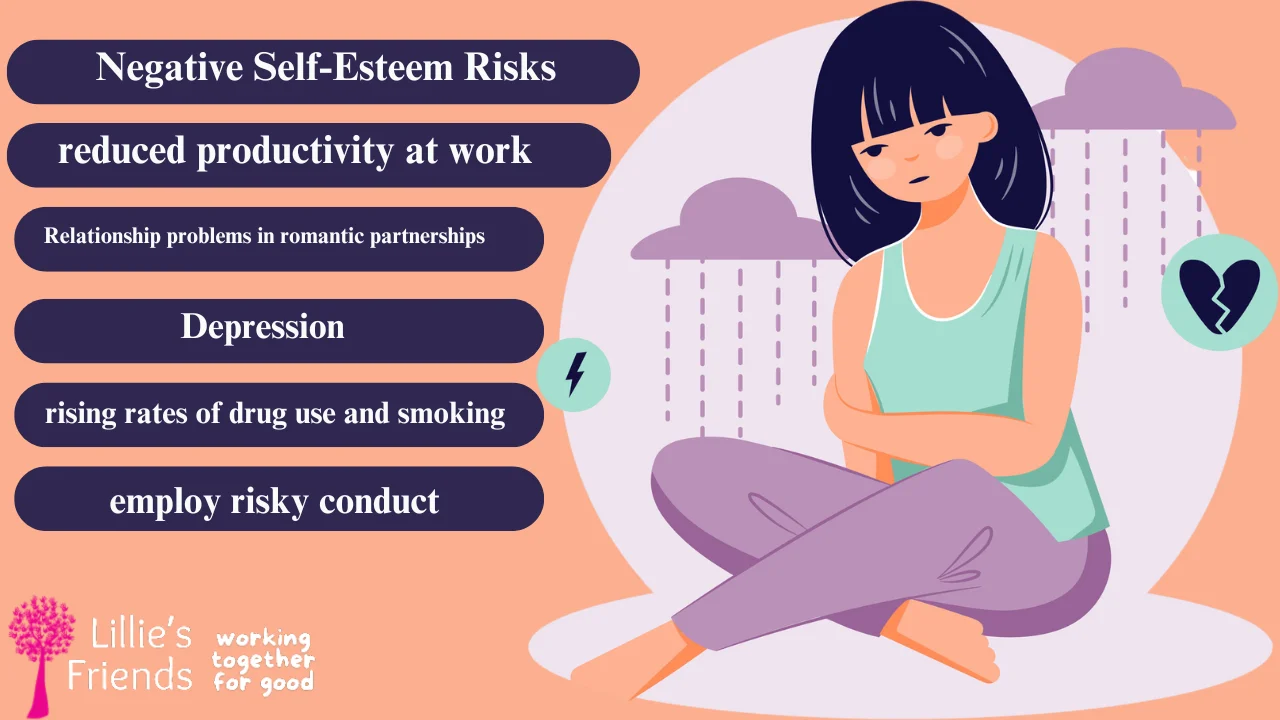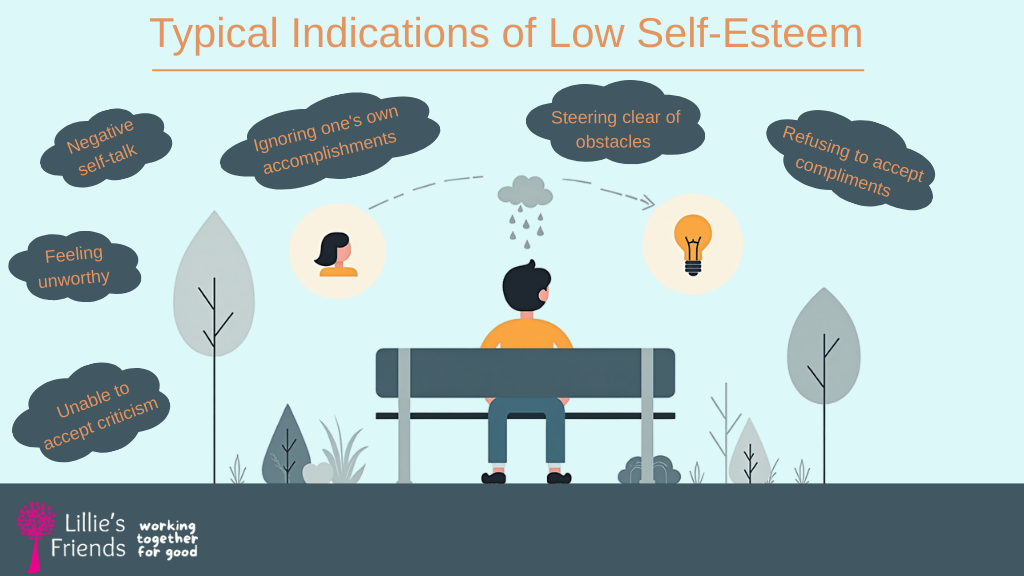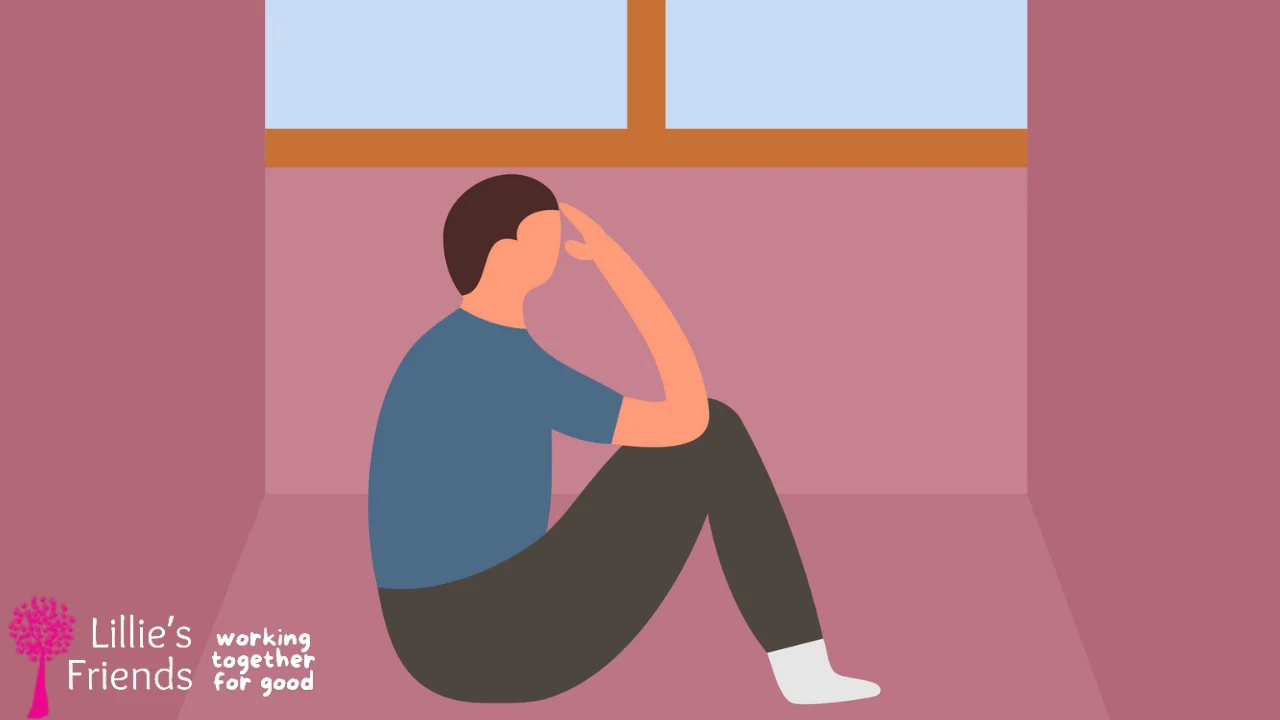Relationships and career choices are only two areas of your life where having poor self-esteem may affect you. Additionally, it could promote a downward spiral of poor mood and critical self-talk, which might make depressive symptoms worse. According to research published in 2019 [1*] , those who have poor self-esteem and a negative self-perception may be more likely to have depressive symptoms.
Depression and low self-esteem are closely related. Although sadness has the power to completely destroy self-esteem, poor self-worth increases a person’s vulnerability to mental health issues. You may nonetheless take action to improve your self-esteem even if you are sad.
This post will cover strategies for increasing self-esteem and confidence. To get understanding, continue reading!
What Qualifies as Low Self-Esteem?
Everybody has moments when they doubt who they are, what they have accomplished, or how successful they really are. You have the freedom to say or do whatever makes you momentarily angry or embarrassed about yourself. These fleeting or recurring feelings, however, are not the same as low self-esteem.
Long-term pessimism about who you are and how you show yourself to the world is a hallmark of low self-esteem. These negative feelings might linger and be difficult to get rid of. For example, if someone praises you, you may not believe them. You may choose to only give yourself credit when you reach a goal.

Common Reasons for Low Self-Esteem
Early experiences might lead to a poor sense of self-worth. If a person experienced abuse or neglect, found it difficult to live up to their parents’ expectations, or felt different from other students, they may grow to have negative fundamental beliefs about themselves. These are ingrained beliefs that a person has about oneself.
Adolescents, particularly young females, could come across negative concepts and beliefs on social media and in the media at large. These concepts may lead children to feel that their worth is based on their appearance or behavior. Such beliefs might lead to low self-worth views and low self-esteem. Low self-esteem may also result from major illnesses, bad relationships, bullying, poor academic achievement, and personal losses.
Indices of Low Self-Regard
The following characteristics are often shown by those who lack self-esteem:
- Having critical internal interactions with oneself (negative self-talk).
- Making unfavorable comparisons to other people.
- Ignoring their accomplishments or refusing to take ownership of them.
- Holding oneself responsible for uncontrollable circumstances.
- Not believing or accepting compliments.
- Ignoring objectives or difficulties.
- Thinking that they are undeserving of happiness, love, or pleasure.
- Hard to accept constructive criticism.
- Experiencing guilt and inadequacy.
- Overemphasizing physical characteristics such as weight and height.
With a mental health professional’s assistance, low self-esteem and confidence may be improved.
What Link Exists Between Self-Esteem and Depression?
For weeks at a time, people suffering from depression—a serious mood disorder—feel hopeless, sad, and numb. Our basic feeling of value is linked to our level of self-esteem, regardless of whether we think we deserve nice things or not.
When you don’t feel deserving, it’s difficult to be content with who you are and your life. And among the clinical indicators of depression is a sense of worthlessness. Traumatic and difficult childhood experiences, often associated with feelings of worthlessness, can also trigger depression.
How Can Self-Esteem Be Improved?
It’s possible for low self-esteem to seep into your personality. Taking care of oneself, however, might improve your sense of self-worth and decrease its influence on your daily activities. You might try these suggestions:
1. Say encouraging words aloud every day.
Whether you write them down in a notebook or just repeat encouraging words to yourself, having a more positive attitude on life will assist. Affirmations do not take the place of therapy or other professional help when someone is sad or nervous, but those who attest to the effectiveness of positive language do exhibit improved mental health and increased self-esteem.
2. Employ techniques for stress management
Stress may worsen depression and lower one’s sense of self. You may, however, acquire methods for managing your stress before it becomes a problem. Try some of the ideas listed below.
- Retain an optimistic attitude about life
- Retain an optimistic attitude about life
- Use mindfulness and meditation to quiet your mind and stop unwanted ideas.
- Practice yoga, work out, or engage in any other physical activity.
- Engage in enjoyable and engaging activities.
- Spend time with those who give you confidence in yourself.
3. Acknowledge your successes
When you give yourself a reward and congratulations for a job well done, you will be most motivated. Making a list of your achievements improves your overall quality of life, keeps you motivated, and provides positive reinforcement. One very effective psychological tactic to raise your self-esteem is positive reinforcement.
4. Exercise assertiveness
Assertiveness straddles the boundary between passiveness and aggression. Being assertive can help you express your needs while showing consideration for others, which will improve your chances of getting the results you want. Although it requires patience and expertise, this ability may also improve your self-esteem.

5. Get into the habit of writing
One strategy to cope with intense emotions is to find a healthy outlet for them. Thus, preserving your mental wellness may benefit from journaling. It may assist you in identifying the sources of your stress or anxiety and creating a more effective plan to deal with them and reduce your concerns. You may also keep a note of all your successes in your diary.
6. Accept and retain commendation
Being able to recognize and appreciate oneself and others is a basic quality. We must become better at doing it. Praise-giving is a fundamental aspect of building and maintaining relationships and improving one’s self-worth. Giving someone praise is one of the best ways to let them know how much we admire and appreciate them.
7. Taking care of yourself
Taking stock of your current relationships is another aspect of self-care, in addition to maintaining personal cleanliness. You can’t change the past, but you can try to reduce stress or end toxic relationships. You may sometimes require support from friends or mental health professionals for this, but in the end, your efforts will help you get over low self-esteem.
8. Ensure that your posture exudes confidence.
Your posture, facial expressions, gestures, and tone of voice are all powerful instruments for communication. Being able to communicate successfully in both personal and professional contexts is crucial for boosting self-esteem since nonverbal cues, sometimes referred to as “body language,” can have a greater impact than words.
Following That
People’s opinions about themselves and their abilities might be impacted by low self-esteem and confidence. And despair might exacerbate the situation. Changing people’s perceptions of them and treating depression symptoms could be beneficial.
It’s okay to seek help from a professional if you struggle to control your low self-esteem











